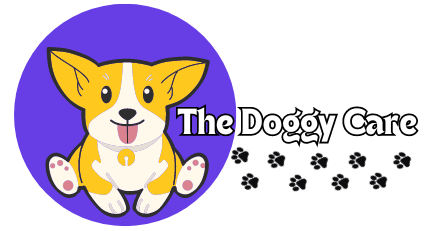Contents
- 1 How to Maintain a Balanced Diet for Your Dog: Expert Advice on Meeting Your Dog’s Nutritional Needs
- 1.1 Understanding Your Dog’s Nutritional Requirements
- 1.2 The Importance of Great Protein
- 1.3 Balancing Fats and Carbohydrates
- 1.4 Vitamins and Minerals: The Essentials
- 1.5 How to Assess Your Dog’s Diet
- 1.6 Adjusting Diet with Age and Health
- 1.7 Reading Dog Food Labels
- 1.8 The Job of Treats in a Balanced Diet
- 1.9 Homemade Diets: Interesting points
- 1.10 Conclusion and Final Thoughts
How to Maintain a Balanced Diet for Your Dog: Expert Advice on Meeting Your Dog’s Nutritional Needs
Presentation
Taking care of your dog with a balanced diet is crucial for their overall health and life span. According to the Association of American Feed Control Officials (AAFCO), approximately 56% of dogs in the U.S. are taken care of by commercial diets that are formulated to be nutritionally finished. However, guaranteeing that these diets meet the individual requirements of your dog can now and again be challenging. This guide offers master advice on how to maintain a balanced diet for your dog, detailing essential supplements and how to adjust food intake to your dog’s age, weight, and health condition.

Understanding Your Dog’s Nutritional Requirements
A balanced diet for your dog incorporates the right extents of proteins, fats, carbohydrates, vitamins, minerals, and water. These supplements should be tailored to your dog’s particular life stages, way of life, and health. Doggies, adult dogs, and seniors have different dietary necessities. For example, young doggies need more protein and calories to help their development and improvement than more seasoned dogs. Understanding these necessities is the most vital phase in giving the most ideal sustenance to your pet.
The Importance of Great Protein
Proteins are the structural blocks of a healthy diet for dogs, essential for muscle improvement and repair. Top-notch proteins from sources like chicken, meat, and fish ought to form the cornerstone of your dog’s diet. It’s crucial to pick dog food that rundowns a protein source as the principal fixing to guarantee that your dog is getting adequate protein.
Balancing Fats and Carbohydrates
Fats are a critical energy hotspot for dogs and help with the absorption of certain vitamins. They also add to a healthy coat and skin. However, too much fat can lead to weight, particularly in less active dogs. Carbohydrates, while not essential in a dog’s diet, can give a valuable energy source and fiber that aids processing. Picking the right balance of fats and carbohydrates based on your dog’s activity level is critical to maintaining their optimal health.
Vitamins and Minerals: The Essentials
Vitamins and minerals support various body capabilities, from bone development to nerve conduction. Dog food varieties are usually formulated to contain the right balance of necessary vitamins and minerals. However, assuming you’re preparing homemade meals, it very well may be necessary to enhance your dog’s diet under veterinary guidance to avoid any inadequacies that can lead to health issues.
How to Assess Your Dog’s Diet
Regularly assessing your dog’s diet is essential to guarantee it meets all nutritional necessities. Signs that your dog probably won’t get a balanced diet incorporate dull coat, lethargy, extreme weight gain or misfortune, and behavioral changes. Talking with a veterinarian can assist you with understanding on the off chance that your dog’s diet is on track or needs adjustment.

Adjusting Diet with Age and Health
As dogs age, their dietary necessities change. Senior dogs frequently require diets lower in calories but higher in fiber, with adjustments for explicit health issues like kidney disease or arthritis. If your dog has health issues, a therapeutic diet may be necessary to manage these circumstances. Always examine such changes with a veterinarian to guarantee the diet upholds your dog’s particular health needs.
Reading Dog Food Labels
Understanding how to read dog food labels can assist you with making informed decisions about the commercial food varieties you choose for your pet. Search for items that fulfill AAFCO’s guidelines, and check for a statement of nutritional adequacy. This indicates that the food is finished and balanced for a particular life stage.
The Job of Treats in a Balanced Diet
While treats can be a phenomenal tool for training, they shouldn’t comprise over 10% of your dog’s total caloric intake. Select healthy treatment choices that give additional nutritional advantages rather than void calories.
Homemade Diets: Interesting points
For individuals who favor preparing homemade meals for their dogs, it’s vital to guarantee that the diet is nutritionally balanced. Talking with a pet nutritionist or veterinarian while planning a homemade diet is crucial to forestall nutritional imbalances that could lead to health issues.

Conclusion and Final Thoughts
Maintaining a balanced diet for your dog is fundamental to guaranteeing their drawn-out health and vitality. The excursion starts with a strong understanding of your dog’s particular nutritional requirements which vary by age, activity level, and health status. By selecting top-notch fixings and carefully balancing supplements like proteins, fats, carbohydrates, vitamins, and minerals, you can dramatically enhance your pet’s quality of life. It is crucial to regularly evaluate the adequacy of your dog’s diet through their physical health indicators, for example, coat quality, energy levels, and overall vitality.
As animal people, we must stay informed and proactive about our dogs’ dietary necessities. Talking with veterinary professionals and potentially a pet nutritionist can give tailored advice that thinks about your dog’s special health prerequisites. This partnership is invaluable in navigating the intricacies of pet sustenance and guaranteeing that your diet decisions support your dog’s health and well-being completely.
Embrace the job of a very much informed pet person. Start today by inspecting your dog’s ongoing diet and examining their nutritional requirements with your vet during your follow-up visit. By focusing on giving the best nourishment to your pet, you guarantee they have a happy, healthy, and active life. This proactive approach is the way to open a satisfying relationship with your dog, focused on care and mutual prosperity.
Master Assets for Additional Guidance
For more detailed guidance on maintaining a balanced diet for your dog, reputable assets like the AAFCO (https://www.aafco.org/) or the American Veterinary Medical Association (https://www.avma.org/) offer broad information and rules.
This detailed aide on how to maintain a balanced diet for your dog emphasizes the importance of understanding your pet’s nutritional requirements and adapting their diet as they age or their health changes. By staying informed and attentive to these dietary prerequisites, you can guarantee that your dog remains healthy, happy, and active all through their life.


























